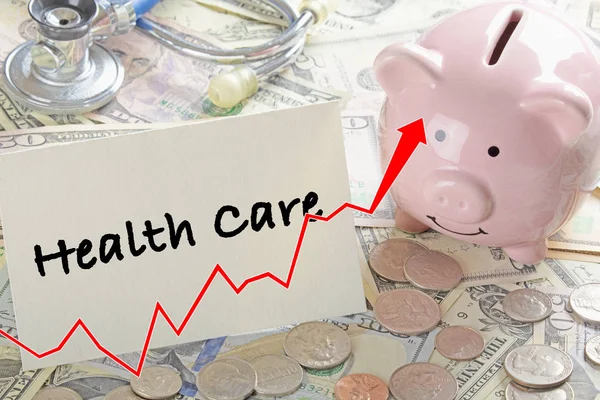
The Benefits of Plant-Based Eating for Your Body and the Environment
Sure, here's a possible introduction for your blog on "The Benefits of Plant-Based Eating for Your Body and the Environment":
Are you tired of feeling bloated, sluggish, and guilty after every meal? Are you concerned about the impact of your food choices on the planet and its inhabitants? Do you want to improve your health, boost your energy, and save money in the process? If so, plant-based eating might be the solution you've been looking for!
Now, before you roll your eyes and dismiss this as yet another fad diet or hippie trend, let me clarify a few things. First of all, plant-based eating is not about depriving yourself of tasty, satisfying food. On the contrary, it's about discovering a whole world of flavors, textures, and nutrients that you probably didn't even know existed! From juicy fruits and crunchy vegetables to hearty grains and legumes, there's no shortage of delicious and nourishing options to choose from.
Secondly, plant-based eating is not just a personal choice or a matter of taste. It's a powerful tool for positive change, both for your own well-being and for the planet's future. By adopting a plant-based diet, you can reduce your carbon footprint, conserve water and land resources, and support more ethical and sustainable food systems. You can also lower your risk of chronic diseases, such as heart disease, diabetes, and cancer, and improve your digestive health, immune system, and mental clarity.
But don't just take my word for it. In this blog, we'll explore the science behind plant-based eating and its benefits for your body and the environment. We'll also share some practical tips and delicious recipes to help you get started on your plant-based journey. And who knows, you might even discover a new favorite food or two along the way! So, grab a green smoothie or a colorful salad, and let's dig in.
Benefits for Your Body

Benefits for Your Body
A. Nutrient-rich diet
If you're looking to get more bang for your bite, plant-based eating is the way to go. Fruits, vegetables, whole grains, nuts, and seeds are packed with essential vitamins, minerals, fiber, and antioxidants that your body craves. Think of them as nature's multivitamin pills, but tastier and easier to digest.
By eating a variety of plant-based foods, you can ensure that you're getting all the nutrients your body needs to function at its best. For example, leafy greens like kale and spinach are rich in calcium, iron, and vitamin K, which are important for bone health and blood clotting. Citrus fruits like oranges and grapefruits are high in vitamin C, which helps boost your immune system and absorb iron from plant sources. And whole grains like quinoa and brown rice are rich in complex carbohydrates, protein, and fiber, which provide sustained energy and promote satiety.
B. Reduced risk of chronic diseases
If you're tired of popping pills and visiting doctors, plant-based eating might be the prescription you need. Numerous studies have shown that a plant-based diet can lower your risk of chronic diseases, such as heart disease, diabetes, and cancer, which are the leading causes of death worldwide.
Why is that? Well, plant-based foods are naturally low in saturated and trans fats, cholesterol, and sodium, which are major culprits of chronic diseases. They're also rich in phytochemicals, such as carotenoids, flavonoids, and resveratrol, which have antioxidant and anti-inflammatory properties that protect your cells from damage and inflammation.
By replacing meat, dairy, and processed foods with plant-based alternatives, you can significantly improve your health outcomes and reduce your reliance on medications and surgeries. Plus, you'll feel better, look better, and save money in the long run.
C. Improved weight management
If you're struggling with weight issues, plant-based eating can be a game-changer. Unlike most diets that focus on calorie counting or portion control, plant-based eating is about nourishing your body with wholesome and filling foods that won't leave you hungry or craving.
Studies have shown that people who follow a plant-based diet tend to have lower body mass index (BMI) and lower rates of obesity than those who follow a standard American diet (SAD). This is partly due to the fact that plant-based foods are generally lower in calories and higher in fiber than animal-based foods, which means you can eat more and feel fuller for longer.
Plant-based eating can also help you shed those stubborn pounds without sacrificing taste or pleasure. There are plenty of plant-based alternatives to your favorite comfort foods, such as pizza, burgers, and ice cream, that are just as satisfying and indulgent. And the best part? You don't have to give up carbs, fats, or sweets to lose weight on a plant-based diet. Just choose the right kinds and amounts of foods, and let your body do the rest.
Benefits for the Environment 

Benefits for the Environment
A. Lower carbon footprint
If you're concerned about the future of the planet and the impact of human activities on the climate, plant-based eating is a no-brainer. By reducing or eliminating your consumption of animal products, you can significantly lower your carbon footprint and contribute to global efforts to combat climate change.
How does that work? Well, animal agriculture is one of the most resource-intensive and polluting industries in the world. It requires vast amounts of land, water, and feed to raise livestock, which produces greenhouse gases (GHG) such as methane and nitrous oxide, that are much more potent than carbon dioxide (CO2). In fact, animal agriculture is responsible for more GHG emissions than the entire transportation sector combined!
By contrast, plant-based foods require much less land, water, and energy to produce, and generate much less GHG emissions. For example, producing a pound of beef requires 20 times more land and emits 20 times more GHG than producing a pound of tofu. By choosing plant-based options, you can reduce your carbon footprint by up to 73%, according to a recent study.
B. Conserves water and land resources
If you're also concerned about the depletion of natural resources, plant-based eating can help with that too. Animal agriculture is not only a major contributor to GHG emissions, but also a major consumer of water and land resources, which are becoming scarcer and more contested in many parts of the world.
For example, producing a pound of beef requires up to 2,500 gallons of water, while producing a pound of wheat requires only 25 gallons. Moreover, animal agriculture is responsible for deforestation, soil erosion, and biodiversity loss, which affect not only wildlife but also human communities that rely on these resources for their livelihoods.
By choosing plant-based foods, you can conserve water and land resources, and support more sustainable and resilient food systems. You can also reduce your contribution to other environmental issues, such as water pollution, air pollution, and waste production, that are associated with animal agriculture and food processing.
C. Supports ethical and sustainable food systems
If you're also concerned about the ethical and social implications of food production, plant-based eating is a way to align your values with your actions. Animal agriculture is not only harmful to the environment, but also to the animals themselves, who are often subjected to confinement, mutilation, and slaughter in inhumane conditions.
By choosing plant-based options, you can reduce your demand for animal products, and support more ethical and sustainable food systems that prioritize the well-being of animals, workers, and consumers. You can also promote local and organic agriculture, fair trade practices, and food sovereignty, that empower communities to produce and consume food in ways that are respectful of their culture, history, and environment. And who knows, you might even discover a new appreciation for the beauty and diversity of plant life, and the wonder of nature's cycles and rhythms.
Improved Digestive Health 

Improved Digestive Health
A. More fiber, less constipation
If you've ever struggled with irregular bowel movements or constipation, plant-based eating can be a game-changer for your digestive health. Plants are naturally rich in dietary fiber, which is the indigestible part of food that adds bulk to your stool and helps move it through your intestines. Fiber also helps feed the beneficial bacteria in your gut, which can improve your immune system and reduce inflammation.
Animal products, on the other hand, contain little to no fiber, and can actually slow down your digestive system and increase your risk of constipation and other gastrointestinal disorders. That's why a plant-based diet has been shown to improve bowel regularity and reduce the symptoms of constipation, hemorrhoids, and diverticular disease.
B. Healthier gut microbiome
If you're also concerned about your overall gut health, plant-based eating can help with that too. Your gut microbiome is the community of trillions of microorganisms that live in your digestive system, and play a crucial role in your digestion, metabolism, and immune function.
Research has shown that plant-based diets can promote a more diverse and beneficial gut microbiome, by providing a variety of prebiotic fibers and phytochemicals that feed and protect the good bacteria in your gut. In contrast, diets high in animal products and processed foods can lead to a less diverse and less healthy gut microbiome, that is associated with chronic diseases such as obesity, diabetes, and inflammatory bowel disease.
By choosing plant-based foods, you can nourish your gut microbiome and support your digestive health, as well as your overall well-being. And who knows, you might even discover a newfound appreciation for the variety and deliciousness of plant-based foods, and the creative ways to prepare and enjoy them.
Better Heart Health 

Better Heart Health
A. Lower cholesterol levels
If you're looking to improve your heart health, plant-based eating can be a great place to start. Plant-based diets have been shown to lower cholesterol levels, particularly LDL or "bad" cholesterol, which is a major risk factor for heart disease. This is because plants contain no cholesterol, and are typically lower in saturated fat than animal products.
Studies have found that people who follow a plant-based diet have lower levels of total cholesterol and LDL cholesterol, as well as triglycerides, another type of blood fat that can contribute to heart disease. This can reduce your risk of heart attack, stroke, and other cardiovascular problems, and improve your overall blood lipid profile.
B. Lower blood pressure
In addition to lowering cholesterol, plant-based eating can also help lower your blood pressure. High blood pressure, or hypertension, is another major risk factor for heart disease, and can damage your blood vessels and increase your risk of heart attack, stroke, and kidney disease.
Plant-based diets are naturally rich in potassium, magnesium, and other minerals that help regulate blood pressure and reduce inflammation. They are also typically lower in sodium than animal products and processed foods, which can contribute to high blood pressure.
Studies have found that people who follow a plant-based diet have lower blood pressure levels, and are less likely to develop hypertension than those who consume a diet high in animal products and processed foods. By choosing plant-based foods, you can nourish your heart and blood vessels, and reduce your risk of cardiovascular disease.
Increased Energy Levels

Increased Energy Levels
A. More vitamins and minerals
If you've ever felt sluggish or tired throughout the day, plant-based eating can be a great way to boost your energy levels. Plant-based foods are packed with vitamins and minerals that your body needs to function properly, including B vitamins, iron, magnesium, and potassium.
These nutrients are essential for producing energy in your cells, and for maintaining healthy blood flow and oxygen delivery to your muscles and brain. By consuming a variety of colorful fruits, vegetables, whole grains, legumes, nuts, and seeds, you can ensure that you're getting all the essential nutrients your body needs to stay energized and alert.
B. Better digestion, better energy
Another way that plant-based eating can increase your energy levels is by improving your digestion. As we mentioned earlier, plant-based diets are rich in dietary fiber, which can help regulate your bowel movements and reduce bloating and discomfort.
When your digestive system is working efficiently, you're more likely to absorb and utilize the nutrients in your food, and less likely to experience energy crashes or brain fog. By choosing plant-based foods that are high in fiber and low in processed ingredients, you can support your digestive health and boost your energy levels naturally.
C. No more "food comas"
Finally, one of the biggest benefits of plant-based eating for your energy levels is the absence of "food comas" or post-meal fatigue. When you consume a heavy or high-fat meal, your body has to work harder to digest it, which can divert blood flow and energy away from your brain and muscles.
This can leave you feeling drowsy, lethargic, and unproductive, especially if you're sitting at a desk or in front of a screen. Plant-based meals, on the other hand, are typically lighter and easier to digest, and can provide sustained energy without the crash. So if you're looking for a way to stay alert and focused throughout the day, plant-based eating might be just what the doctor ordered.
Stronger Immune System

Stronger Immune System
A. Nutrient-packed foods
Plant-based diets are often filled with nutrient-dense foods that can help boost your immune system. Fruits, vegetables, nuts, and seeds are packed with vitamins, minerals, and antioxidants that support immune function, such as vitamins C and E, beta-carotene, and zinc.
These nutrients can help improve your body's ability to fight off infections, bacteria, and viruses. For example, vitamin C is essential for producing white blood cells, which play a key role in fighting infections. Zinc has been shown to reduce the duration and severity of colds, while vitamin E can help protect against viral infections.
B. Anti-inflammatory effects
Plant-based eating has also been shown to have anti-inflammatory effects, which can help support a healthy immune system. Chronic inflammation is linked to a variety of health problems, including autoimmune disorders, cancer, and heart disease.
By consuming a diet that is rich in fruits, vegetables, whole grains, and other plant-based foods, you can help reduce chronic inflammation in your body. This can improve your immune response and reduce your risk of developing chronic diseases.
C. Probiotics and prebiotics
Finally, plant-based diets can be a great source of probiotics and prebiotics, which can help support a healthy gut microbiome. Your gut microbiome is made up of trillions of bacteria and other microorganisms that play a crucial role in your immune system, digestive health, and overall well-being.
Probiotics are beneficial bacteria that can help balance your gut microbiome and improve immune function. Prebiotics are dietary fibers that serve as food for these beneficial bacteria. Plant-based foods like fermented vegetables, tempeh, miso, and kefir are rich in probiotics, while foods like garlic, onions, bananas, and oats are high in prebiotics.
By consuming a variety of plant-based foods, you can support a healthy gut microbiome and strengthen your immune system. This can help you stay healthy and prevent infections and illnesses.
Lower Healthcare Costs

Lower Healthcare Costs
A. Reduced risk of chronic diseases
One of the biggest benefits of plant-based eating is the reduced risk of chronic diseases, such as heart disease, diabetes, and cancer. Plant-based diets are rich in nutrients and low in saturated fat and cholesterol, which can help improve overall health and reduce the risk of developing chronic conditions.
By reducing your risk of chronic diseases, you can also reduce your healthcare costs. Chronic conditions often require ongoing medical care, medication, and monitoring, which can be expensive over time. By investing in a plant-based diet and lifestyle, you can help prevent the onset of these conditions and save money on healthcare costs.
B. Lower medication costs
In addition to reducing the risk of chronic conditions, plant-based eating can also lower medication costs. Many chronic conditions require medication to manage symptoms and prevent complications. However, some medications can be expensive and have side effects.
By adopting a plant-based diet, you can help manage or even reverse some chronic conditions, reducing the need for medication and lowering your healthcare costs. For example, research has shown that plant-based diets can help improve blood sugar control in people with type 2 diabetes, potentially reducing the need for medication.
C. Fewer doctor's visits
Finally, plant-based eating can also lead to fewer doctor's visits and healthcare costs. By improving overall health and reducing the risk of chronic conditions, you may be able to avoid or delay the need for medical care.
For example, people who consume a plant-based diet are less likely to need hospitalization for heart disease or other chronic conditions. This can result in lower healthcare costs and fewer missed days of work or other activities.
Overall, plant-based eating can be a cost-effective way to support your health and reduce healthcare costs over time. By investing in a healthy diet and lifestyle, you can improve your well-being and save money on medical care and medications.
Social and Ethical Benefits

Social and Ethical Benefits
A. More sustainable food system
Plant-based eating can help support a more sustainable food system, which can have positive social and ethical impacts. Animal agriculture is a significant contributor to greenhouse gas emissions, water pollution, and deforestation. By consuming a plant-based diet, you can reduce your carbon footprint and help protect the planet for future generations.
A more sustainable food system can also help promote social and ethical values, such as fairness and justice. Sustainable agriculture practices can help ensure that food is produced in a way that is equitable for farmers and farm workers, and that protects the rights of animals and the environment.
B. Improved food access
Plant-based eating can also help improve food access for marginalized communities. Many low-income communities and communities of color lack access to healthy, affordable food options. Plant-based foods, such as fruits, vegetables, and legumes, can be more affordable and accessible than animal-based products.
By promoting plant-based eating and supporting sustainable agriculture, we can help improve food access and promote social and ethical values.
C. Reduced animal suffering
Finally, plant-based eating can help reduce animal suffering. Many people choose to adopt a plant-based diet out of concern for animal welfare. The animal agriculture industry often involves practices that can be harmful or cruel to animals, such as confinement, overcrowding, and mistreatment.
By consuming plant-based foods instead of animal products, you can help reduce demand for these harmful practices and support more humane treatment of animals.
Overall, plant-based eating can have social and ethical benefits, including promoting sustainability, improving food access, and reducing animal suffering. By making conscious choices about the foods we consume, we can help create a more just and equitable world for all.
Conclusion
Conclusion
In conclusion, plant-based eating offers a multitude of benefits for both your body and the environment. By consuming more fruits, vegetables, whole grains, and legumes, you can improve your health, reduce your environmental impact, and promote social and ethical values.
Plant-based eating has been shown to improve digestive health, boost heart health, increase energy levels, and strengthen the immune system. By reducing the risk of chronic conditions and promoting overall well-being, plant-based diets can also lead to lower healthcare costs and fewer missed days of work or other activities.
Furthermore, plant-based eating can help support a more sustainable food system, promote food access and justice, and reduce animal suffering. By making conscious choices about the foods we consume, we can have a positive impact on our health, the environment, and the world around us.
So, whether you're looking to improve your health, reduce your carbon footprint, or promote ethical values, adopting a plant-based diet can be a simple and effective way to achieve your goals. So, why not give it a try? Your body, the environment, and the animals will thank you for it!
 Reviewed by jadan
on
March 05, 2023
Rating:
Reviewed by jadan
on
March 05, 2023
Rating:




No comments: